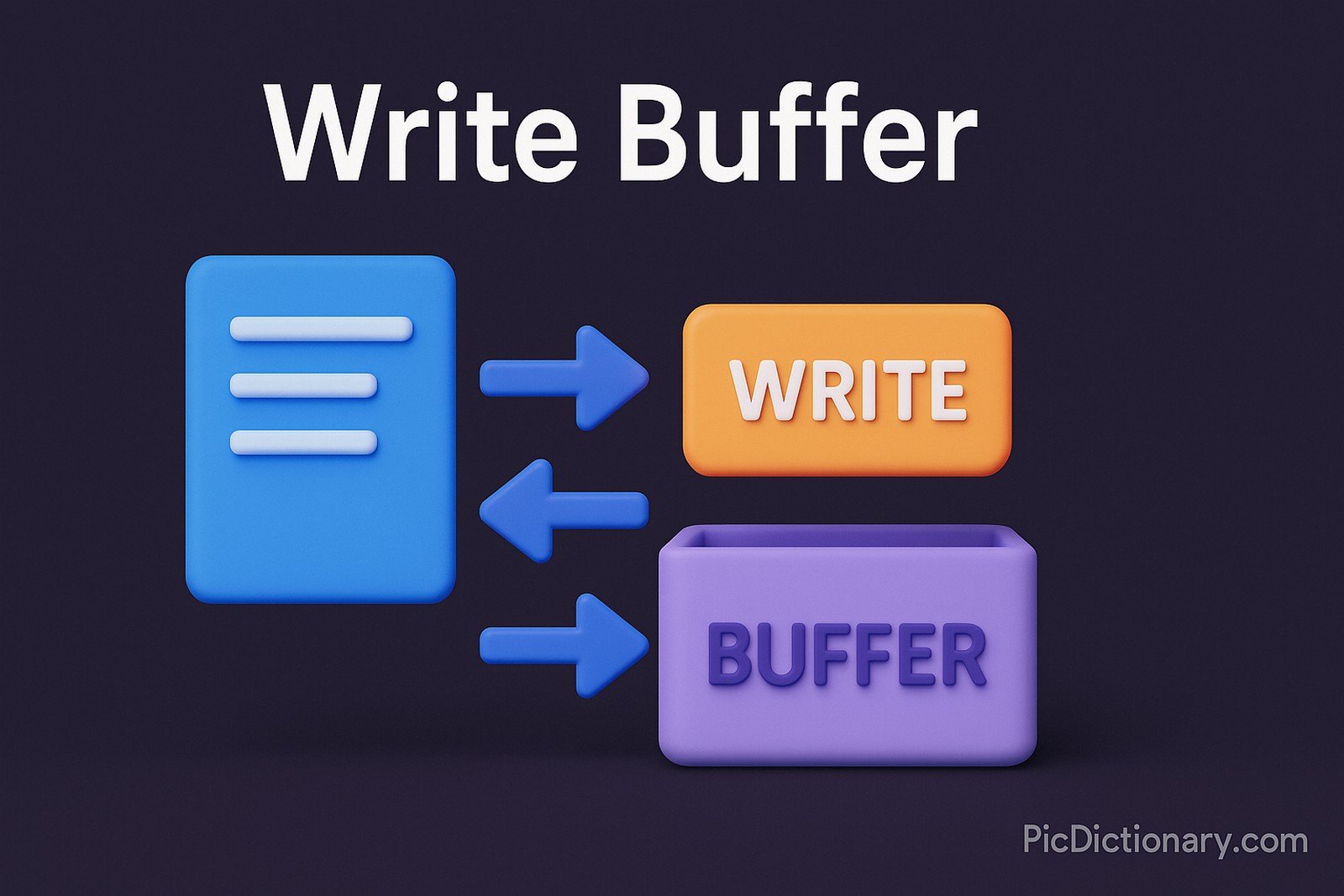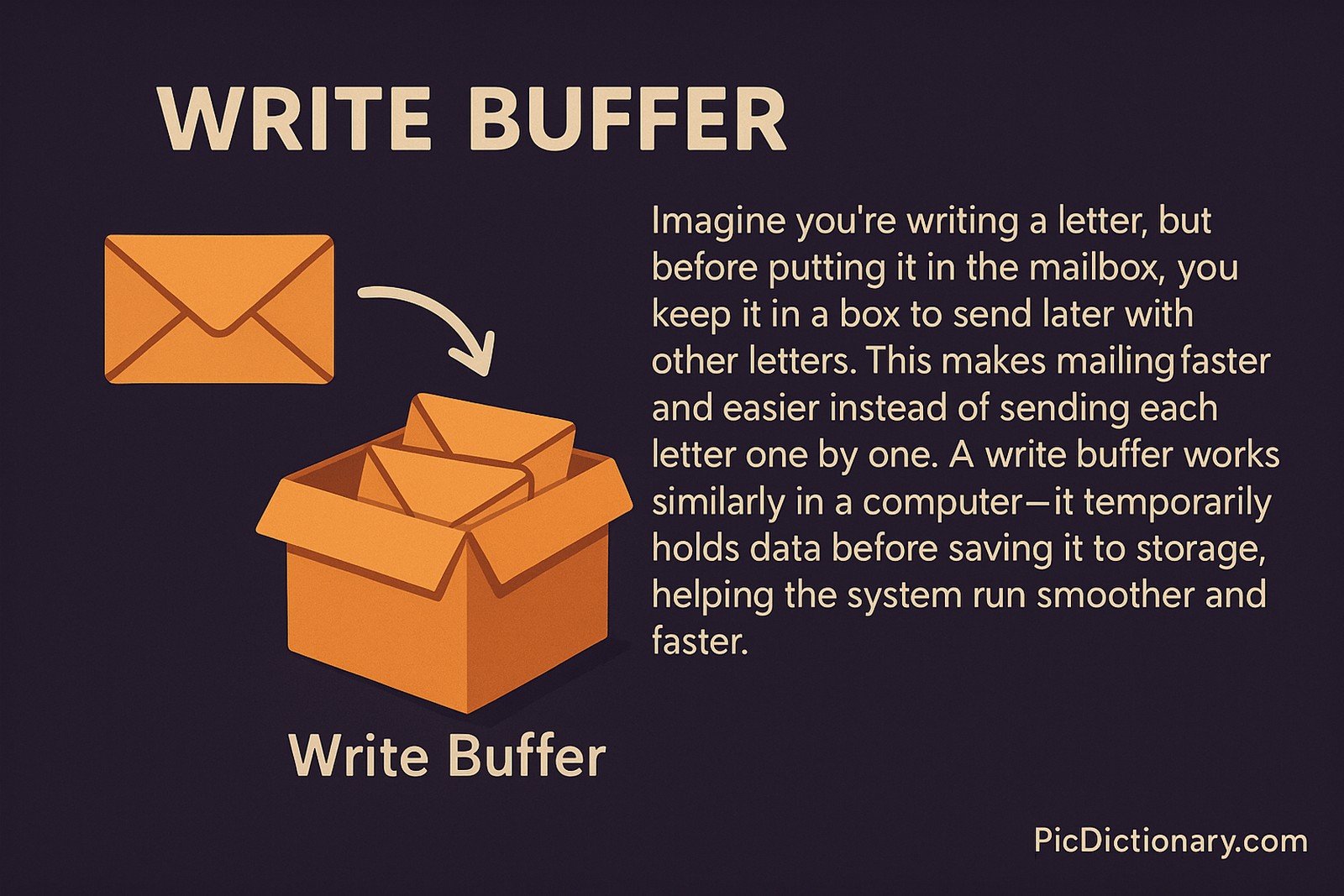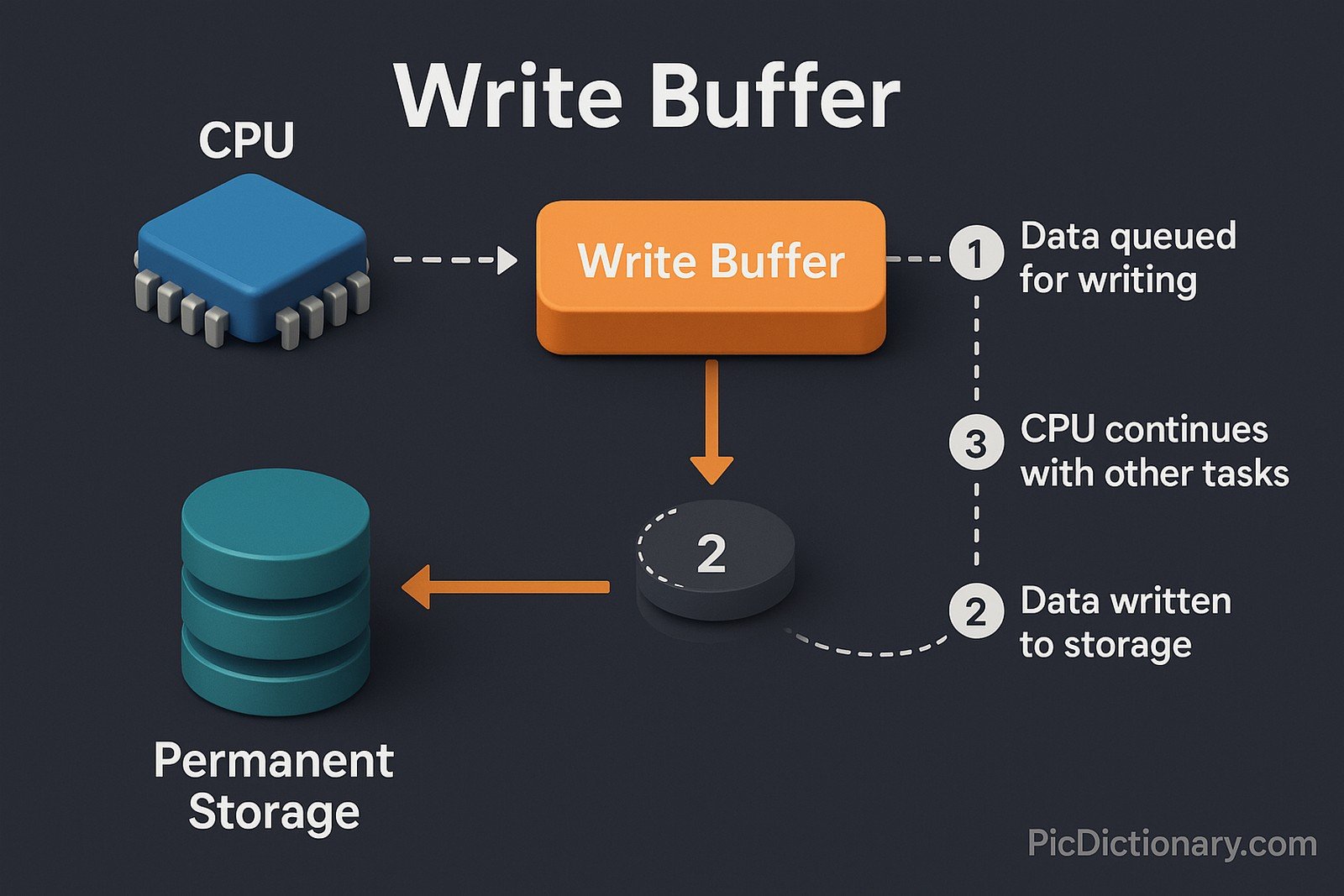Write Buffer

Quick Navigation:
- Write Buffer Definition
- Write Buffer Explained Easy
- Write Buffer Origin
- Write Buffer Etymology
- Write Buffer Usage Trends
- Write Buffer Usage
- Write Buffer Examples in Context
- Write Buffer FAQ
- Write Buffer Related Words
Write Buffer Definition
A write buffer is a temporary storage area in computer systems where data is held before being written to permanent storage or memory. It optimizes system performance by allowing the CPU to proceed with other tasks while data is queued for writing. This buffering mechanism helps minimize delays caused by slow storage write speeds. Write buffers are widely used in processors, databases, and disk storage systems to enhance efficiency and prevent performance bottlenecks.
Write Buffer Explained Easy
Imagine you're writing a letter, but before putting it in the mailbox, you keep it in a box to send later with other letters. This makes mailing faster and easier instead of sending each letter one by one. A write buffer works similarly in a computer—it temporarily holds data before saving it to storage, helping the system run smoother and faster.
Write Buffer Origin
The concept of buffering in computing has existed since the early days of computers. Write buffers became essential as CPU speeds outpaced memory and disk writing speeds. With increasing storage demands, efficient buffering mechanisms were developed to reduce delays and enhance data transfer efficiency.
Write Buffer Etymology
The term “buffer” originates from the Latin word *buffare*, meaning to absorb shock. In computing, a buffer absorbs the delay between data processing and storage, ensuring smooth operations.
Write Buffer Usage Trends
With the rise of high-speed computing and big data applications, write buffers have become critical in optimizing performance. They are widely used in CPU architectures, caching mechanisms, and database management systems. Modern SSDs (Solid-State Drives) also use advanced write buffering techniques to extend lifespan and improve efficiency.
Write Buffer Usage
- Formal/Technical Tagging:
- Memory Management
- Storage Optimization
- Data Processing - Typical Collocations:
- "write buffer optimization"
- "delayed write buffer"
- "write buffer overflow"
- "memory write buffer"
Write Buffer Examples in Context
- In database management, a write buffer temporarily holds updates before committing them to the main database.
- A CPU uses a write buffer to handle multiple data operations efficiently before storing them in RAM.
- SSDs use write buffers to optimize data writing speed and reduce wear on storage cells.
Write Buffer FAQ
- What is a write buffer?
A write buffer is a temporary memory area where data is stored before being written to storage. - How does a write buffer improve performance?
It reduces delays by allowing the system to queue write operations instead of waiting for each one to complete. - Where are write buffers used?
They are used in processors, storage devices, databases, and file systems. - Can a write buffer cause data loss?
If a system crashes before the buffered data is written, data loss can occur unless protective measures like journaling are in place. - What is the difference between a cache and a write buffer?
A cache stores frequently used data for quick access, while a write buffer holds data before committing it to storage. - What is a write buffer overflow?
It occurs when a buffer exceeds its storage capacity, potentially causing data loss or system slowdowns. - Do all storage systems use write buffers?
Most modern storage devices and databases utilize write buffers for efficiency, but implementations vary. - How does a write buffer impact SSD performance?
It helps distribute write operations efficiently, reducing wear on SSD memory cells. - Can write buffering be disabled?
Yes, but disabling it can slow down system performance and increase latency. - Are write buffers important for gaming?
Yes, they help maintain smooth data flow and reduce loading times in games.

Write Buffer Related Words
- Categories/Topics:
- Computer Memory
- Data Storage
- System Performance
Did you know?
Some high-end gaming consoles use write buffers to enhance game load times and improve overall gaming performance by preloading assets into memory before they are needed.
PicDictionary.com is an online dictionary in pictures. If you have questions or suggestions, please reach out to us on WhatsApp or Twitter.Authors | Arjun Vishnu | @ArjunAndVishnu

I am Vishnu. I like AI, Linux, Single Board Computers, and Cloud Computing. I create the web & video content, and I also write for popular websites.
My younger brother, Arjun handles image & video editing. Together, we run a YouTube Channel that's focused on reviewing gadgets and explaining technology.



Comments powered by CComment